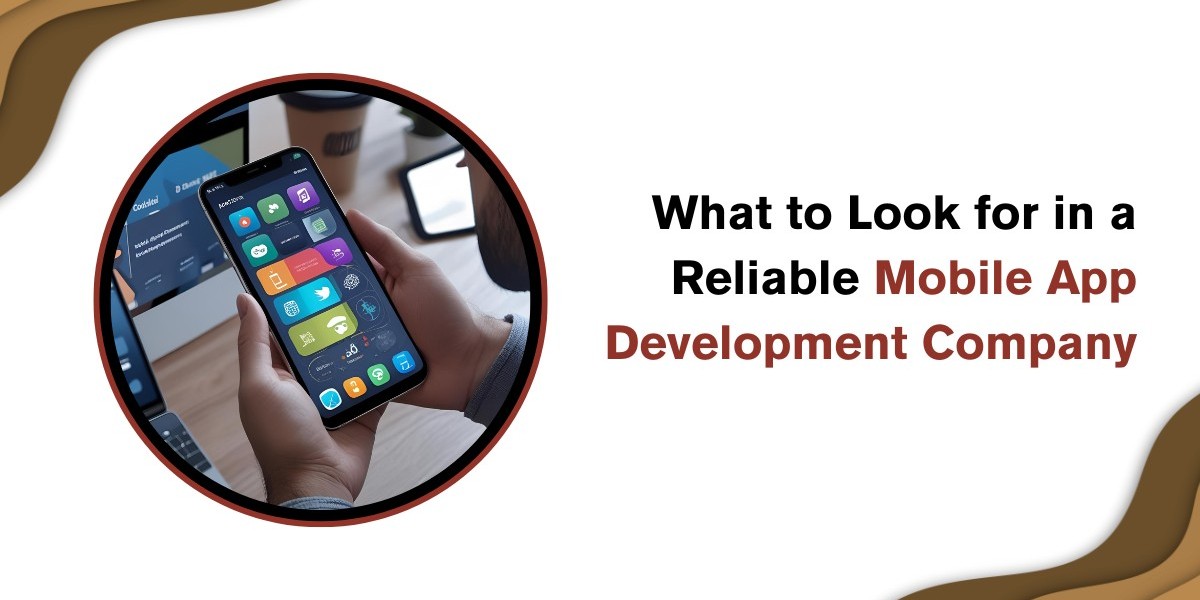Choosing the right Mobile App Development Company is a critical decision for any business building a mobile app. A successful app must be fast, stable, secure, and user-friendly. The company you hire will determine not only how the app performs, but also how users engage with it, and how well it supports future growth.
1. Proven Technical Skills and Portfolio
A Mobile App development company should have strong technical skills and a solid portfolio of past projects.
What to Look For:
Experience with both Android and iOS platforms
Use of programming languages like Kotlin, Swift, Dart, or JavaScript
Past work in relevant industries
Demonstrated ability to build scalable apps
Stable, crash-free apps with positive user reviews
Why It Matters:
A company’s portfolio shows its ability to deliver complex applications that perform well across devices. Reliable companies follow software architecture standards like MVVM or MVC to keep code clean and scalable.
2. Cross-Platform vs Native Expertise
Deciding between cross-platform and native development impacts time, cost, and performance.
Key Considerations:
Native development (Kotlin for Android, Swift for iOS) is ideal for performance-critical apps
Cross-platform frameworks (Flutter, React Native) offer faster development across platforms
A good company can recommend the right approach based on your goals
Technical Benefits:
Cross-platform tools can reduce development time by up to 40%, while native apps may perform better for apps that need low-latency input or access to device hardware.
3. Strong Development Process
Process matters as much as programming skills. A structured development process ensures consistency and quality.
What a Strong Process Includes:
Agile methodology with sprints and iterative releases
Daily or weekly stand-up meetings
Defined development stages: planning, UI/UX design, coding, testing, deployment
Clear documentation at every stage
Why It Helps:
A defined process reduces bugs, improves predictability, and shortens the development cycle. It also ensures accountability across team members.
4. Comprehensive Testing Practices
Reliable app development companies prioritize testing throughout the project, not just before launch.
Types of Testing to Expect:
Unit testing for individual functions
UI testing for interface consistency
Load testing to check app performance under stress
Security testing to prevent data breaches
Device and platform testing across Android and iOS versions
Impact:
Frequent bugs, crashes, and memory leaks are leading reasons for app uninstalls. Testing keeps the app stable and responsive across devices.
5. UI/UX Design Capability
User experience plays a major role in retention. Even technically perfect apps fail if users struggle to navigate them.
What to Look For:
Wireframes and clickable prototypes during planning
Custom UI that follows platform guidelines
Accessibility for users with disabilities
Designs optimized for one-handed use
User Behavior Facts:
A poorly designed interface is one of the top reasons users abandon apps. Fast onboarding and intuitive navigation increase retention by over 50%.
6. Data Privacy and Security Compliance
Security is essential for any app, especially those handling user data, payments, or sensitive information.
What a Good Company Provides:
End-to-end encryption
Two-factor authentication or biometrics
Compliance with privacy laws like GDPR or CCPA
Secure data storage and transfer
Regular security audits and penetration testing
Importance:
Security breaches damage both reputation and revenue. A professional company includes secure coding practices and proactive threat detection.
7. Backend and API Integration
The app front-end must connect seamlessly to back-end systems, cloud services, and third-party APIs.
Capabilities to Expect:
Development of secure and scalable APIs
Integration with third-party services (payments, maps, CRMs, etc.)
Use of cloud platforms like AWS, Google Cloud, or Azure
Proper error handling and failover logic
Technical Insight:
A strong backend supports future scalability. It allows seamless updates, push notifications, data sync, and secure login features.
8. Post-Launch Support and Maintenance
Development doesn’t stop after launch. Apps require updates, bug fixes, and server maintenance.
Reliable Support Includes:
Monthly updates with bug fixes and performance improvements
Quick response to security issues
Compatibility updates with new Android/iOS versions
Analytics review and optimization
Business Value:
Consistent maintenance improves user satisfaction and ensures your app stays functional across changing device platforms.
9. Analytics and Performance Monitoring
An app is only as good as the data it provides to improve it.
Tools and Practices:
Integration with analytics platforms like Firebase or Mixpanel
Tracking of daily active users, session length, retention rate
Monitoring of app crashes, memory usage, and network latency
Event tracking for key actions like purchases or shares
Why It Matters:
Real-time analytics help improve the app based on how users interact with it. Companies that monitor key metrics can optimize features and reduce churn.
10. Scalability and Future-Proofing
Apps must adapt to growth. Features, data, and users will scale. Your development partner must prepare for that.
How They Do It:
Modular code for adding new features
Scalable cloud infrastructure
APIs with version control
Feature flag systems for safe testing of new features
Future Growth:
If an app cannot scale with demand, it fails quickly. Planning for scalability from day one saves time and money later.
11. Effective Communication and Project Transparency
Good communication is as important as technical skill. You need constant visibility into progress and challenges.
What to Expect:
Clear project timelines and cost estimates
Regular updates on tasks and milestones
Access to version control systems like Git
Shared documentation and design files
Key Benefit:
Strong communication helps avoid scope creep and project delays. It builds trust and reduces misunderstandings.
12. Client Reviews and Reputation
Look for companies with a history of happy clients and successful launches.
How to Check:
Read verified reviews on platforms like Clutch or GoodFirms
Contact references and ask about the delivery process
Look for apps with good ratings and downloads in app stores
What It Shows:
Reputation reflects real-world reliability. A consistent record of quality and deadlines is a sign of a trustworthy company.
13. Transparent Pricing and Contract Terms
Pricing models vary. A reliable company provides a clear cost structure and contract terms.
Pricing Models:
Fixed price: best for small or clearly defined projects
Time and material: flexible for complex or evolving projects
Retainer model: ideal for long-term support or updates
What to Watch For:
Hidden charges or change fees
Vague project scope or timelines
Poorly defined ownership of code and IP
Business Impact:
Clear contracts reduce legal risk and ensure both parties understand responsibilities and outcomes.
14. Innovation with New Technologies
A forward-thinking partner stays current with new trends like AI, AR, and machine learning.
Examples of Innovation:
AI for chatbots or content recommendations
AR for virtual product trials
Voice recognition integration
IoT for connected devices
Advantage:
Working with a company that experiments with new technologies ensures your app remains relevant as user expectations evolve.
Conclusion
A reliable Mobile App Development Company delivers more than working code. It brings technical skill, structured development, performance focus, and long-term support. As apps become central to business, choosing the right development partner ensures your app meets technical standards, engages users, and supports business growth.








